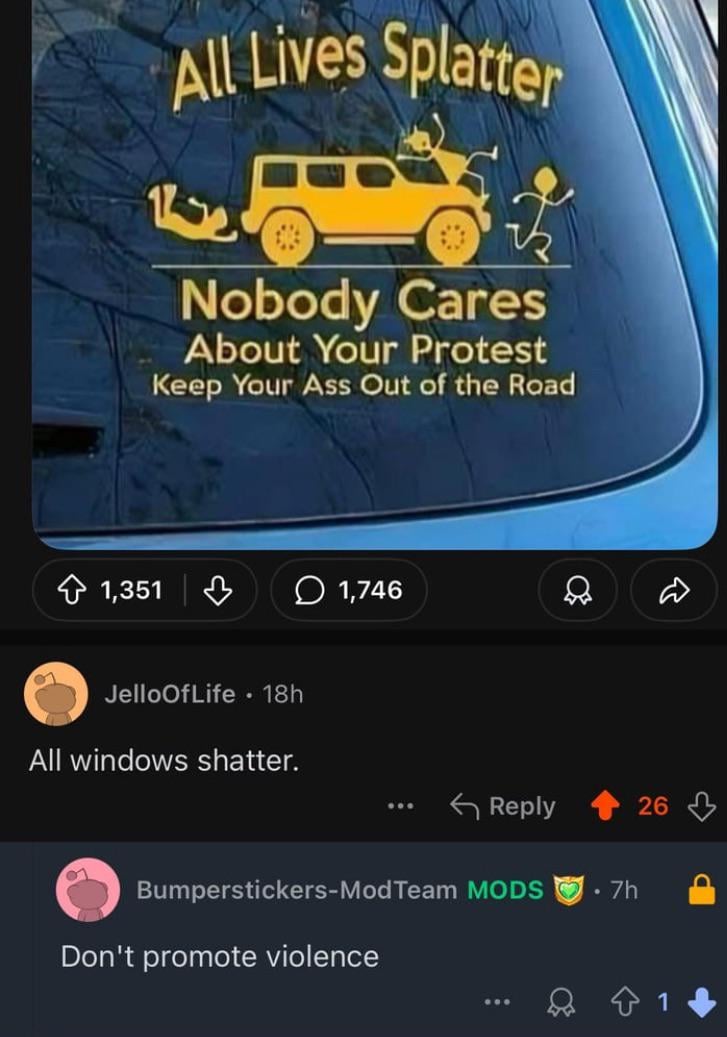Fuck Cars
A place to discuss problems of car centric infrastructure or how it hurts us all. Let's explore the bad world of Cars!
Rules
1. Be Civil
You may not agree on ideas, but please do not be needlessly rude or insulting to other people in this community.
2. No hate speech
Don't discriminate or disparage people on the basis of sex, gender, race, ethnicity, nationality, religion, or sexuality.
3. Don't harass people
Don't follow people you disagree with into multiple threads or into PMs to insult, disparage, or otherwise attack them. And certainly don't doxx any non-public figures.
4. Stay on topic
This community is about cars, their externalities in society, car-dependency, and solutions to these.
5. No reposts
Do not repost content that has already been posted in this community.
Moderator discretion will be used to judge reports with regard to the above rules.
Posting Guidelines
In the absence of a flair system on lemmy yet, let’s try to make it easier to scan through posts by type in here by using tags:
- [meta] for discussions/suggestions about this community itself
- [article] for news articles
- [blog] for any blog-style content
- [video] for video resources
- [academic] for academic studies and sources
- [discussion] for text post questions, rants, and/or discussions
- [meme] for memes
- [image] for any non-meme images
- [misc] for anything that doesn’t fall cleanly into any of the other categories
Recommended communities:
view the rest of the comments

There is a tangible difference between cutting off utility infrastructure and the fallout from shutting down oil refineries. Sabotaging a substation or power plant, blocking vital thorofares, shutting down water plants, etc will cause direct deaths and fall more in line with an attack on the population than a protest. That is what certain countries are doing to their neighbors and we rightly condemn that even in war.
Causing a drop in available fuel through refinery or pipeline embargo or sabotage would at worst cause rationing and prioritization to emergency services. This will of course cause damage to those that rely on transportation, but allows the ability to plan for/around that infrastructure disruption does not.
Blocking roads is the least impactful infrastructure disruption obviously, but disruption of fire, police, and other emergency services is still a more direct impact than what would amount to the 70s oil embargo.
When we get into acceptable losses, it can sound like the "left's" equivalent to gun rights. I am not saying these are the same, or of the same magnitudes, just that the argument is made for how many gun deaths are acceptable to retain fundamental liberties. Both are probably important discussions to have, but there will be people who is answered to both will be zero or who don't even want to engage with such a topic.